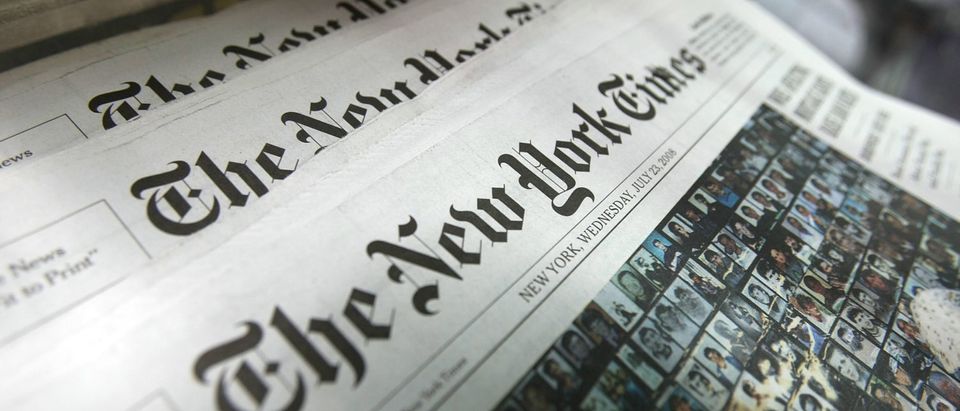The New York Times defended its decision to publish key details about the whistleblower who made the complaint about President Donald Trump’s phone call with Ukrainian president Volodymyr Zelensky after facing backlash from readers online.
After the newspaper disclosed that the whistleblower was reportedly a CIA officer who had been assigned to the White House, many readers were outraged that the Times would release information that could potentially endanger the whistleblower’s identity. (RELATED: Report: Whistleblower Was White House-Seconded CIA Agent)
The hashtag “CancelNYT” began to trend on Twitter shortly after the story was published.
“Dear Board of Directors of the NYT: what Dean Baquet did today was immoral, irresponsible& intolerable,” said former Democratic Florida congressional candidate Pam Keith on Thursday. “We have a free press because of people willing to defend democracy. If it was left to 45, you’d all be in jail. HOW DARE YOU betray our democracy by endangering its protectors?”
Dear Board of Directors of the NYT: what Dean Baquet did today was immoral, irresponsible& intolerable. We have a free press because of people willing to defend democracy. If it was left to 45, you’d all be in jail. HOW DARE YOU betray our democracy by endangering its protectors?
— Pam Keith (@PamKeithFL) September 26, 2019
Riddle me this: NYT attempts to out a whistleblower protected by law while regularly granting anonymity to Trump Administration officials who have repeatedly used the paper to mislead the public. pic.twitter.com/inALoPGqpx
— Eric Schultz (@EricSchultz) September 26, 2019
Dean Baquet, the executive editor of the Times, responded to criticism Thursday, saying, “The role of the whistle-blower, including his credibility and his place in the government, is essential to understanding one of the most important issues facing the country – whether the president of the United States abused power and whether the White House covered it up.”
Dean Baquet, our executive editor, explains why we chose to publish the information about the whistle-blower https://t.co/5BtDXYpoiz pic.twitter.com/s0mZaivG3t
— The New York Times (@nytimes) September 26, 2019
“The president and some of his supporters have attacked the credibility of the whistle-blower, who has presented information that has touched off a landmark impeachment proceeding. The president himself has called the whistle-blower’s account a ‘political hack job,'” Baquet said in a note published Thursday in the Times.
He added, “We decided to publish limited information about the whistle-blower — including the fact that he works for a nonpolitical agency and that his complaint is based on an intimate knowledge and understanding of the White House — because we wanted to provide information to readers that allows them to make their own judgments about whether or not he is credible.”
Many individuals on Twitter continued to criticize the paper and its handling of the story. Former CIA employee John Sipher responded to the Times by saying, “Bull! It doesn’t promote the public interest in any way. How does it help the public if the individual worked at DIA, CIA, FBI or State Department. You are putting this person at risk. Is it because you want people to come to you rather than use proper channels? Looks like it.”
Bull! It doesn’t promote the public interest in any way. How does it help the public if the individual worked at DIA, CIA, FBI or State Department. You are putting this person at risk. Is it because you want people to come to you rather than use proper channels? Looks like it.
— John Sipher (@john_sipher) September 26, 2019


